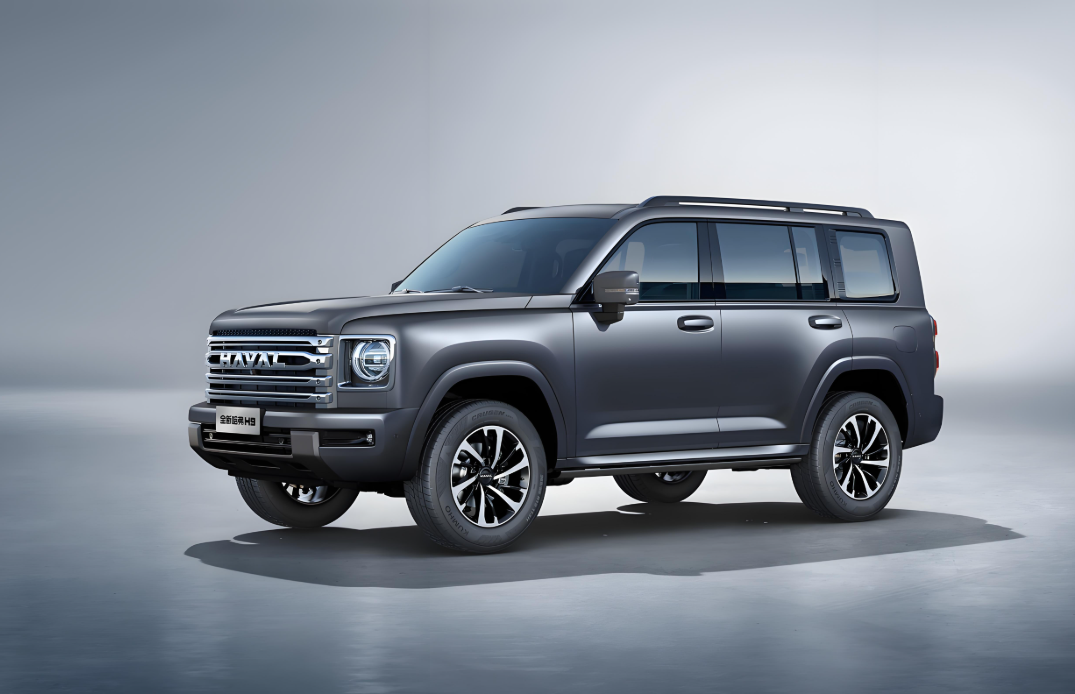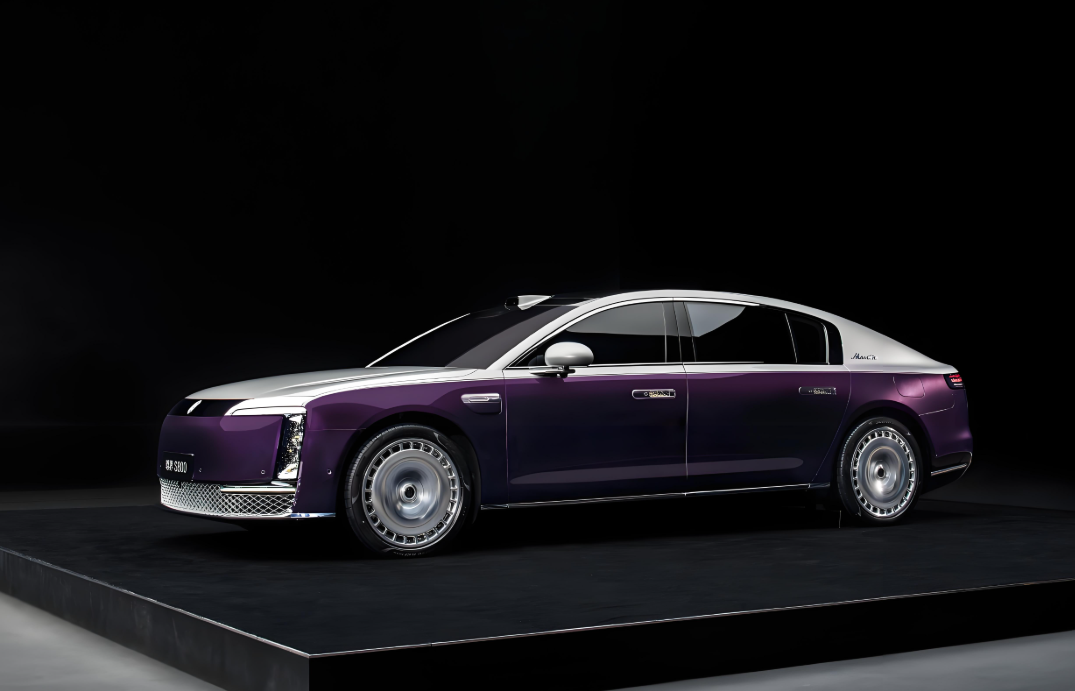Will Wei Jianjun Realize His Vision of a High-Stakes Rivalry with BYD in the Million-Yuan Luxury Car Market?
![]() 01/17 2025
01/17 2025
![]() 576
576
Establishing a premium brand stands as a dream for most Chinese automakers. In the elite circle of million-yuan autonomous ultra-luxury vehicles, which includes BYD's NEVO, GAC Aion's Hyper SSR, and Huawei and JAC's Zenith S800, a new entrant is anticipated.
Great Wall Motors is set to embark on a fresh wave of product and brand elevation initiatives.
Recently, reports have emerged that Great Wall Motors intends to launch the "Great Wall Premium Luxury Car BG," targeting the high-end market. This brand will not only be headed by Song Dongxian, the former vice president of Great Wall Motors, as CEO, but also by Wei Jianjun, the chairman of Great Wall Motors, who will concurrently serve as chairman of the new venture.
According to current information, Great Wall Motors' new brand will focus on new energy vehicle models, positioning itself above existing Great Wall Motors brands, emphasizing "high-quality, small-batch" operations. This brand has already mapped out a diverse range of models, including supercars and sedans, all equipped with Great Wall Motors' self-developed 4.0TV8 engines.

△ Wei Jianjun will personally spearhead the development of Great Wall Motors' Premium Luxury Car BG models.
Great Wall Motors Desperately Needs a High-End Brand Breakthrough
In 2024, Great Wall Motors sold 1.2333 million new vehicles, maintaining roughly the same sales volume as in 2023.
By brand, the Haval brand remains the cornerstone of Great Wall Motors' sales, with a total sales volume of 706,200 units for the year. The WEY, Ora, and Tank brands sold 54,700 units, 63,300 units, and 231,000 units, respectively, in 2024. In the pickup truck segment, Great Wall Motors continues to hold a significant advantage, with a total sales volume of 177,100 units for the year. Notably, Great Wall pickups have been China's top-selling for 27 consecutive years, commanding a domestic market share of nearly 50%.

△ Pickup trucks are currently Great Wall's most stable sales model.
Beyond the pickup truck market, Great Wall's other brands face relatively challenging environments. Particularly in the hardcore off-road market where Tank operates, BYD's FANGCHENGBAO initiated price reductions last year, initiating direct competition with the Great Wall Tank brand. Tank is currently Great Wall Motors' most premium brand and a significant profit contributor. With an increasing number of hardcore off-road/boxy SUV models entering the market, it will become increasingly difficult for the Tank brand to sustain its past high growth rates.

△ The Tank brand, which is Great Wall's main profit source, faces challenges.
In this scenario, whether from the perspective of completing its brand matrix or better addressing competition in the domestic automotive market, Great Wall Motors urgently needs to establish a new brand to propel the company's sales to new heights.
Will Great Wall Motors' Fourth Attempt at Brand Upgrading Succeed?
For automakers, the significance of establishing a premium luxury brand is self-evident, especially for domestic mainstream autonomous automakers of Great Wall Motors' stature, where a premium brand holds irreplaceable importance.

△ Great Wall has long sought brand upgrading by creating models like the Haval H9.
On one hand, premium automaker brands can generate substantial revenue. For automotive brands priced above one million yuan, there is inevitably a significant brand premium. Given that Great Wall Motors' existing vehicle manufacturing processes and models are already very mature, the new premium brand can fully leverage Great Wall Motors' existing system capabilities, meaning its initial investment will not be substantial.
On the other hand, a premium automaker brand has a clear driving effect on Great Wall Motors as a whole. A technologically advanced and high-end brand can not only provide users of other Great Wall Motors brands with an upgrade option but also radiate its technology and brand appeal to other brands under Great Wall Motors.
Precisely because there are so many benefits to building a premium brand, this also signifies that establishing a premium brand, especially a luxury car brand priced above one million yuan, is highly challenging. Great Wall Motors has previously attempted brand upgrading several times but failed to achieve the desired results.
Apart from the Haval H8 and H9 previously launched by Great Wall Motors, the company also established the WEY brand in 2016, named after its founder Wei Jianjun. In 2024, WEY's annual sales volume was only 54,700 units, representing a year-on-year increase of 31.55%, but the gap with mainstream domestic new force automakers remains significant.

△ The current sales volume of WEY is markedly different from that of mainstream domestic new force automakers.
At the end of 2020, Great Wall Motors introduced Salon Auto, aiming to compete in the luxury pure electric market priced between 400,000 and 800,000 yuan. The first model under the Salon brand, Jialong, was unveiled at the 2021 Guangzhou Auto Show. However, due to Great Wall Motors' overall strategic adjustment, Jialong has not been able to go on sale. In March 2023, Great Wall Motors underwent a relatively large integration, merging the Ora and Salon brands. Since then, there has been no news of Salon's mass production models, and the brand has gradually faded from public view.

△ Neither Jialong nor the entire Salon brand ultimately achieved mass production.
Currently, Great Wall Motors not only possesses the Hi4-T powertrain system but also has accumulations in the fields of the Internet of Vehicles and intelligent driving. More critically, as a traditional automaker, Great Wall Motors will also deploy the 4.0TV8 engine for the new premium brand. For a premium model, the absence of range anxiety and the ability to leverage the large torque advantages of internal combustion engines make hybrid models more acceptable to domestic and global consumers. Therefore, based on its profound past vehicle manufacturing experience, Great Wall Motors naturally has the confidence to challenge the premium brand market.

△ Great Wall Motors has already accumulated profound experience in underlying technologies.
Autonomous Brands Are Surging Upward
Currently, the upward momentum of Chinese automotive brands is undeniable. BYD has launched the NEVO brand based on its Denza and FANGCHENGBAO brands, completing its layout in the million-yuan luxury car segment; Huawei and JAC Automobile have jointly created the Zenith S800, with a pre-sale price directly set at 1 to 1.5 million yuan. Additionally, models like NIO's ET9 and ZEEKR's 001FR are also priced at a high level.

△ The Zenith S800 created by JAC and Huawei directly targets Maybach and Rolls-Royce.
The reason domestic autonomous brands have such confidence mainly stems from their performance in the two most crucial forward-looking technological fields: new energy battery-electric-electric technology and intelligent connectivity, where domestic automakers are on par with, or even technically superior to, foreign automakers. Additionally, through diligent efforts over the past 20 years, autonomous automakers have rapidly narrowed the gap with multinational automotive giants in traditional automotive technologies such as chassis control and NVH. Chinese automobiles have not only made leapfrog progress in vehicle integration technology but have also accumulated certain advantages throughout the entire automotive industry chain.

△ Chinese automakers have made rapid progress in chassis control.
For autonomous automakers developing million-yuan luxury cars, beyond technology, the greater challenge lies in the lack of recognized brand power. Building recognized brand power is not something that can be achieved overnight; it requires relentless effort and even upfront investment without expecting immediate returns from the automaker.
For Great Wall Motors, while it may seem somewhat surprising to build a luxury brand, it is also within reason. Like other domestic autonomous brands, Great Wall Motors needs to inject new vitality into its corporate development through brand upgrading. In recent years, like other traditional automakers, Great Wall Motors has also fallen into a price war in China, and its previous dominant development trend led by the Haval H6 is no longer evident. The next step will be to see if Wei Jianjun and the Great Wall Motors management team can lead the company to rediscover new development momentum and reach new heights. Perhaps, the niche market of the brand-new premium luxury brand will become Wei Jianjun's new "battlefield" for a "fight to the finish".
(This article is original content from Heyan Yueche and may not be reproduced without authorization)








